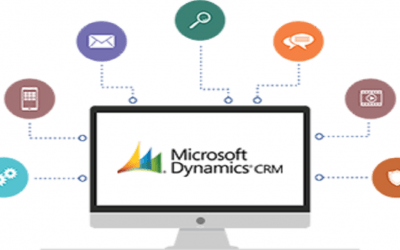What Small Businesses Need to Know About CRM
What Every Small Businesses Need to Know About CRM
Customer relationship management (CRM) software is designed to streamline your business’ interaction with customers and prospects. While it is used regularly in large corporations, many small business owners have not fully embraced CRM systems.
This is a shame because CRM software development had advanced to the point where the user interface is extremely simple and easy to use and installation is a breeze. At this point, there is no excuse for any small business to not us a CRM system.
CRM software development has reached the point where many customer interactions can be automated. A welcome email can be automatically sent out when a new customer comes on board, for example.
If you want to add a CRM system to your small business there are a few things you should know.
1- CRM Is All About The Customer
Customer relationship management software is not just about gathering basic customer information and sending out generic emails on birthdays and anniversaries. Instead, it is about giving your business a real sense of who your customer is and helping nurture them through the buying process and turning them into delighted customers.
Using a CRM allows you to focus on your customer and the results that matter to your business. You can use the data to strengthen your relationships and build a reputation of caring that so many consumers are seeking.
2- It’s Not Just A Software Tool
While CRM systems are certainly software programs, they are really more than that. As CRM development continues to advance, the amount of data that businesses can utilize grows exponentially.
By truly integrating CRM systems into your business you can spot trends in your customer base and make changes accordingly.
If there is a part of your marketing strategy that is not performing like it used to, you can easily identify it and make the necessary changes. By analyzing the data you receive from the software you can modify your marketing strategy and fine-tune your business practices.
3- You Must Buy In Completely
Any CRM system will require a complete organizational acceptance. As a small business owner, you may have a small staff, but each employee must embrace the new system change.
As an owner, it is your responsibility to demonstrate how CRM will impact and benefit each employee in the company. Once everyone sees how microsoft dynamic CRM will lead to happier customers and will bring value and satisfaction to each position at the company they will be more apt to accept this change.
Buying in starts from the top down. When your employees see that you have embraced CRM they will be much more inclined to embrace it as well. You can then monitor them to make sure they are using it on a daily basis.
4- The Choice Is Yours
There are a wide variety of CRM systems out there for you to choose from. This is where you really need to do your homework. Do not settle for the first vendor that walks through your doors.
Since every business is different you want to find a CRM system that can be customizable to fit your needs. Make a list of features you will need and problems that must be solved before you start looking. Armed with this list you can begin to weed out the systems that do not off what you want.
And do not think that you need to spend a lot of money for a CRM system. There is a wide range of pricing out there, depending on what features you need. Shop around for the best deal.
CRM software development is changing at a rapid pace. More feature and data points are added each year. There is a tendency to feel overwhelmed when looking for a CRM for the first time. After you begin to narrow down your choices ask for a free trial period to see if you like a particular one. Adding a CRM to your business is a big commitment so go slow and find the one that is a perfect fit for you.
Need Help With CRM Development?
Our experts can help you in developing your next world class CRM applications.








